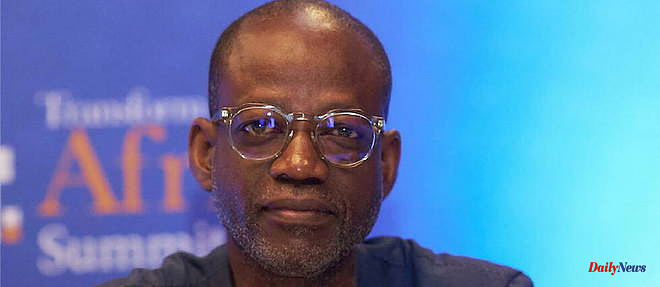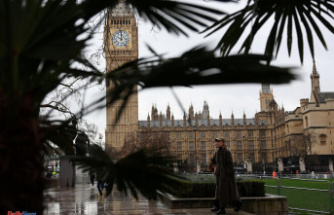Ten years ago, a group of African "wise men" decided to join forces to accelerate the socio-economic development of the continent by leveraging new technologies. This commitment will give birth to the Smart Africa Alliance, an institution that brings together heads of state, but also international organizations as well as global and African players in the digital sector. Their vocation: to accelerate the digitization of the continent and create a common market in this area by 2023. Launched in 2013 by seven African Heads of State, the Alliance now counts among its members 36 countries representing more than one billion people and more than 40 members of the private sector. On the occasion of the last edition of his annual high mass, Transform Africa Summit, the first outside Rwanda where he was born, the Managing Director of Smart Africa Lacina Koné took part in a progress report and delivered the outline of its new roadmap. Interview.
Le Point Afrique: The last edition of Transform Africa Summit, the first post-pandemic, the first also outside Rwanda, has just ended. Did she achieve her goals? At least, are you satisfied?
Lacina Koné: If the participants are happy, so am I because I am judged by heads of state, delegates, partners... The feedback is good. Especially for a first out of Kigali. It was a challenge. And it's even more of a challenge when you have heads of state involved. We brought together in Victoria Falls, Zimbabwe, five heads of state, including a king, 44 ministers and around 4,000 delegates from 91 countries. A historic mobilization therefore.
The meeting took place in a particular context, that of the post-Covid period. While the pandemic has resulted in an acceleration of digitalization on the continent, aren't there still major challenges?
Yes, it is a long-term job. But the worst that can happen is that we don't do anything because we're already late. As the President of Malawi, Lazarus Chakwera, reminded us in his speech at the opening session, when you are in a country or a continent where everything is behind, the only way to catch up is to take shortcuts. And this shortcut is digital.
Africa remains the continent with the lowest internet penetration rate with only around 39-40% of the population compared to a global average of almost 60%. If half of its market does not have Internet access, it becomes a digital market of only 700 million people. It is not the Africa we want. To build the Africa we dream of, we need to move faster, and the 4th Industrial Revolution allows us to pick up the pace and make big leaps. The Africa we want is a transformed, innovative, connected continent, which was the theme of this summit. This entails translating Africa's digital revolution roadmap and achieving our shared vision of creating a single digital market by 2030.
What role Smart Africa, which wants to be a catalyst, can and wants to play?
Smart Africa is indeed a catalyst, an accelerator of the continent's transformation and digital agenda. And who says accelerator says anti-decelerator. You have to be pragmatic, participatory, bold! When you are in an accelerator approach, you can only adopt a collaborative approach. We see it with the various partners who support us. This commitment and this mobilization are a testimony of their support and their desire to accompany the African digital agenda.
To have more impact, we need more member countries, but the enthusiasm and the strong mobilization of the beginnings seem to be running out of steam. What do you think ?
From my point of view, there is no slowing down. When I took office in 2019, we were 24 members. Entering the Smart Africa Board of Directors held during Transform Africa, there were 36 of us. With the Kingdom of Eswatini joining and applications from Zambia and Botswana, we were set to be 39 members .
You should know that we are here in the presence of a coalition of good will because one becomes a member in order to be able to work with the others. Each country must therefore adopt a master plan. I take the example of Tunisia. Since joining in 2017, we have worked together on the master plan and the Startup Act. It is a membership of goodwill which is not political. Just because we have 54 countries doesn't mean we have to have 54 members. That said, the 37 member countries today represent over 1.1 billion people and over 85% of the continent's population.
You are multiplying strategic partnerships with international players in the sector, including Hewlett Packard, Hitachi, and African companies as well. Is the involvement of the private sector important in this acceleration of the continent's digital transformation?
The private sector is the key! For the continent to flourish, we need the private sector. The background for this transformation is the private sector because we don't have the know-how. We rely on international players like Hitachi, which you mention, but also on Afrochampions like Ascend Digital or Asmos Consulting Africa who also formalized their membership during the summit. What we are aiming for is to create Afrochampions because they are the ones who will support African economies.
When we adopted the Smart Africa Manifesto, at the end of the first edition of Transform Africa, in October 2013, which text led to the creation of the Alliance, we pointed this out. It was about prioritizing the private sector and not just the international private sector. It is time to trust our private sector.
This edition of Transform Africa also marked the tenth anniversary of Smart Africa. The opportunity to take stock, but also to identify prospects. What is your roadmap for the next two years?
Ten years is indeed an important age for an institution. The opportunity to take a break and look back on the last ten years to observe the mountains that we still have to climb. Today we express our gratitude to the founding fathers of the Smart Africa Alliance launched at the first Transform Africa Summit in October 2013 by 7 Heads of State with a mandate to drive Africa's socio-economic developments by leveraging the power of digital transformation. It was a modest start with a capital of 600,000 US dollars. It was also important because a seed had been planted to transform Africa into the continent we want.
We look back today and can say with pride that we have played our part. Our decade-long journey has been marked by strong and meaningful multi-stakeholder collaboration and partnership through practical projects and initiatives, with a shared vision accelerating the creation of a single digital market by 2030. We have grown from seven Member States in 2013 to an alliance of 37 member states representing a population of 1.1 billion people, more than 50 private members and a capital of $23 million. And we continue to grow.
Partnerships have been developed across the continent, over a hundred, including with development agencies and funding organizations such as BMZ, GIZ, European Union, World Bank, NORAD, African Development Bank development, BADEA…
As for our new roadmap, it's about reorganizing ourselves into four major programs. First around the keywords "Connect, Innovate Transform". "Connect" is about long-term, inclusive and sustainable basic infrastructure. "Innovate" is about capacity building. "Transform" is about digital transformation and digital services. Then, around digitalization and support for member countries. Some countries need to accelerate their digitalization and benefit from this type of adapted support. These are the main lines of our 2023-2025 plan.
We aim to have a greater impact on Africa's economic and social transformation and to put Africans at the center of the digital revolution for the creation of a just and inclusive society that provides equal opportunities for all. Ten years later, our mandate remains more relevant than ever.
The next edition of Transform Africa, will it be a return to Kigali or the continuation of your African tour?
We will indeed continue to shoot on the continent before returning to Kigali. Applications are open for the next edition. They should be completed next September. Several criteria will be decisive, including infrastructure, security and logistics.












